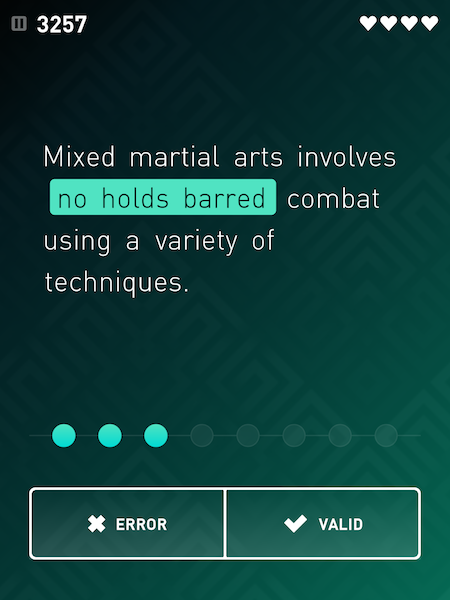by Naomi L. | November 30, 2016 | Blog, Creative Writing |
November 2016 has been an incredibly hectic month, hasn’t it? From the chaos surrounding the U.S. presidential election to the final sprints of NaNoWriMo, it certainly hasn’t been the easiest few weeks for many writers who actively follow politics. As it draws to a close, I confess I found myself more emotionally drained this month than I can recall feeling at any point during the last few years (and that’s saying something). Sounds like now would be a good time for some more inspirational words!
So just for fun, and as a little ray of sunshine for anyone else who may be needing it these days, here are ten inspirational quotes for hope and a brighter future. Enjoy!
 1) You may say I’m a dreamer, but I’m not the only one. I hope someday you’ll join us. And the world will live as one. – John Lennon
1) You may say I’m a dreamer, but I’m not the only one. I hope someday you’ll join us. And the world will live as one. – John Lennon
2) It’s really a wonder that I haven’t dropped all my ideals, because they seem so absurd and impossible to carry out. Yet I keep them, because in spite of everything, I still believe that people are really good at heart. – Anne Frank, The Diary of a Young Girl
3) We are only as strong as we are united, as weak as we are divided. – J.K. Rowling, Harry Potter and the Goblet of Fire
4) There is some good in this world, and it’s worth fighting for. – J.R.R. Tolkien, The Two Towers
5) Only when it is dark enough can you see the stars. – Martin Luther King Jr.
6) There is a saying in Tibetan, ‘Tragedy should be utilized as a source of strength.’ No matter what sort of difficulties, how painful experience is, if we lose our hope, that’s our real disaster. – Dalai Lama XIV
7) Remember, hope is a good thing, maybe the best of things, and no good thing ever dies. – Stephen King, The Shawshank Redemption
8) The road that is built in hope is more pleasant to the traveler than the road built in despair, even though they both lead to the same destination. – Marion Zimmer Bradley, The Fall of Atlantis
9) I am fundamentally an optimist. Whether that comes from nature or nurture, I cannot say. Part of being optimistic is keeping one’s head pointed toward the sun, one’s feet moving forward. There were many dark moments when my faith in humanity was sorely tested, but I would not and could not give myself up to despair. That way lays defeat and death. – Nelson Mandela, Long Walk to Freedom: Autobiography of Nelson Mandela
10) The best way to not feel hopeless is to get up and do something. Don’t wait for good things to happen to you. If you go out and make some good things happen, you will fill the world with hope, you will fill yourself with hope. – President Barack Obama
What are your thoughts on these quotes? Any others you would add to the list?
by Naomi L. | November 28, 2016 | Blog, Word of the Week |
Word: vitriolic
Pronunciation: vi-tree-AH-lik
Part of Speech: adjective
Definition: filled with bitter criticism or malice
Source: Oxford Dictionaries
There are many words out there to define the bitter, the critical, and the downright mean. As a writer, you may often find yourself in need of a variety of these words to keep your descriptions of villains and conflicts fresh and vivid. Today’s vocabulary post features one such word that I feel adds a poetic touch to otherwise coarse writing. Why call certain acts “sour” or “cruel” when you can call them “vitriolic”?
To be “vitriolic” is to be filled with bitter malice or criticism. The word is the adjective form of the noun “vitriol“, meaning “cruel and bitter criticism”. This noun arose in late Middle English as a reference to the sulfate of various metals and comes from the Latin noun vitriolum “sulphuric acid”, which in turn stems from the Latin noun vitrum “glass”.
As noted above, “vitriolic” derives from a word that was once a chemistry term for “sulfuric acid” but has since become dated in this sense. Today, the noun “vitriol” mostly refers to abusive language, so by extension, the adjective “vitriolic” also refers primarily to caustic and malicious speech. However, I’ve also seen it used to describe violent actions, so I assume it’s up to a writer’s discretion how best to use it. If your characters often engage in harsh and spiteful speech or actions, “vitriolic” may be a good word to add to your vocabulary!
What are your thoughts on this word? Any suggestions for future “Word of the Week” featured words?
by Naomi L. | November 25, 2016 | J.C. Wolfe's Writing, Poetry |
There are many things that make me
Happy every single day of my life:
A loving family who always support me,
Never-ending inspiration to write, learn, and live,
Kisses and hugs from the people I love most.
So many blessings for which I’m ever
Grateful, I give thanks for today as the
Innumerable favors that make up the
Vivid beauty of my incredible life.
I wish you all a wonderful day, and may you
Never forget to be thankful for the joys in your life too!
God bless, and have a Happy Thanksgiving!
Happy Thanksgiving to all my friends and family! May you all have a blessed weekend!
by Naomi L. | November 23, 2016 | Blog, Creative Writing |
Remember that list of commonly misspelled expressions I shared last week? Well, here are a few more to add to your notes. I know, sometimes it seems like there are way too many of these to keep track of. Anyway, while you’re working on your novel for NaNoWriMo or any other writing projects, it may be worth keeping a long list of these expressions as a reference. You never know when you might find yourself second-guessing the spelling of an idiom, right?
So for further reference, here are 12 more expressions you may have misheard and/or written incorrectly. Enjoy!
 1) Beck and call: indicates being constantly ready to obey someone’s orders immediately. Write “beck and call”, not “beckon call”.
1) Beck and call: indicates being constantly ready to obey someone’s orders immediately. Write “beck and call”, not “beckon call”.
2) By and large: an alternative expression for “on the whole” or “everything considered”. Write “by and large”, not “by in large” nor “buy and large”.
3) Curb your appetite: to restrain or keep your appetite in check. Write “curb your appetite”, not “curve your appetite”.
4) Foolproof: describes something that is incapable of going wrong or being misused. Write “foolproof”, not “full proof”.
5) In this day and age: an alternative expression for “at the present time” or “in the modern age”. Write “in this day and age”, not “in this day in age”.
6) Leeway: indicates the available amount of freedom to move or act or a margin of safety. Write “leeway”, not “leadway”.
7) Nitpicking: denotes looking for small insignificant errors or faults, usually in order to criticize unnecessarily. Write “nitpicking”, not “knitpicking”.
8) No holds barred: indicates that no rules or restrictions apply in a dispute or conflict. Write “no holds barred”, not “no holes barred”.
9) Rank and file: an expression of military origin referring to the ordinary members of an organization as opposed to its leaders. Write “rank and file”, not “ranking file”.
10) Sneak peek: describes a special preview of something before it becomes generally available. Write “sneak peek”, not “sneak peak”.
11) Vice versa: a Latin phrase denoting that a statement remains true when the objects are switched. Write “vice versa”, not “vice a versa”.
12) With all due respect: a polite expression used to mitigate the effect of a disagreement or criticism. Write “with all due respect”, not “with all do respect”.
What are your thoughts on these expressions and idioms? Any others you would add to this list?
by Naomi L. | November 21, 2016 | Blog, Word of the Week |
Word: beholden
Pronunciation: bə-HOHL-d(ə)n
Part of Speech: adjective
Definition: owing thanks or having a duty to someone in return for help or a service
Source: Oxford Dictionaries
Thanksgiving is this week, so I thought it would be fun to share a vocabulary word that fits the occasion. I researched synonyms for “thankful”, but most of the words that came up were pretty common, such as “grateful”, “appreciative”, and “obliged”. However, I did manage to find a word that I wasn’t yet familiar with, and though it may not qualify as an exact synonym of “thankful”, it’s at least related enough to have made it into the latter’s thesaurus entry. Still, I can see why this word isn’t as common; while it’s good to be “grateful” for what you have, you don’t necessarily want to be “beholden” to others for it!
To be “beholden” is to owe thanks or have a duty to someone in return for help or a service. The word arose in late Middle English and is the former past participle of an otherwise unrecorded definition of the verb “behold”, in the sense “bound”. This verb stems from the Old English verb bihaldan “to retain”, which comprises the prefix bi- “throughout” and the verb haldan “to hold”.
While “beholden” is listed as a word related to “thankful”, it’s really more of a synonym for “obliged”, which means to “make someone legally or morally bound to an action or course of action”. Of course, to “be obliged” also means to “be indebted or grateful”, so “beholden” could probably be used politely in this sense as well. At the very least, being an uncommon word, I would recommend it for historical or even technical writing. If your characters often feel indebted to each other for help or services exchanged, “beholden” may be a good word to add to your list!
What are your thoughts on this word? Any suggestions for future “Word of the Week” featured words?
 1) You may say I’m a dreamer, but I’m not the only one. I hope someday you’ll join us. And the world will live as one. – John Lennon
1) You may say I’m a dreamer, but I’m not the only one. I hope someday you’ll join us. And the world will live as one. – John Lennon


Recent Comments